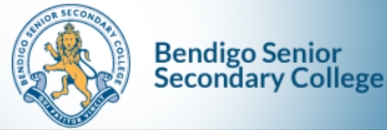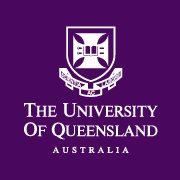The ties between Australia and Indonesia continue to develop, with an increasing number of Australians travelling to Indonesia for leisure, business and education purposes; numbers of Indonesians visiting Australia are also increasing.

The languages of the Indonesian archipelago have been used in Australia since contact several centuries ago between the peoples of the islands now known as Indonesia and the Aboriginal and Torres Strait Islander peoples of northern Australia.
The ties between Australia and Indonesia continue to develop, with an increasing number of Australians travelling to Indonesia for leisure, business and education purposes; numbers of Indonesians visiting Australia are also increasing.
Indonesia currently has Australia’s largest overseas diplomatic presence. Indonesian, or Bahasa Indonesia, is spoken by approximately 230 million people throughout the Indonesian archipelago. Closely related dialects of the same language, usually called Malay, are used in Malaysia, Singapore, Brunei and southern Thailand.
Indonesian is a standardised language that is the official language of government, education, business and the media. It has been and continues to be shaped by other languages, most significantly Javanese, Dutch, Arabic and English.
Indonesian is written using the Roman alphabet, and there is a clear correlation and a degree of consistency between its sound and its written form. This feature generally makes it easy for speakers of English as a first language to predict how to say, read or write Indonesian words.
Who We Are
The School of Languages is a government school which specialises in languages education. Since its establishment in 1986, this unique South Australian school has supported thousands of students to pursue their interest in languages learning and to experience the joy of embracing another culture.
The school was initially founded as a secondary school for students from all three sectors. In 2000 the school introduced its first classes for students from Reception to Year 7. Since then our primary classes have continued to grow in popularity and demand.
Our Mission
The School of Languages aims to enhance access, choice and continuity in language learning for South Australian learners, through the provision of quality programs in a broad range of languages R-12, that complement and supplement languages programs offered in mainstream schools and ethnic schools.
Our Values
Our Unique Context
Students from Government, Catholic and Independent schools come together after school hours to learn the language of their choice, which is not available in their home school. Lessons are held once a week in a friendly environment of committed professionals and motivated students. This provides for a sustained focus and time for extending students’ learning through a wide range of activities.
Teaching Centres
Our classes are held in schools across Adelaide, with Adelaide High School being the largest centre. Approximately 25 other teaching centres offer a variety of languages at various year levels, in response to local demand.
We give special acknowledgement and appreciation to the many schools across Adelaide that host our programs, thus enabling students and their families to benefit from learning a language.
Choosing To Learn A Language
Studying another language offers many rewards, including:
being able to communicate, interact and negotiate within and across languages and cultures
understanding one’s own and others’ languages, thus improving literacy skills, including in English
understanding selves and others, and the diverse ways of knowing, being and doing
further developing cognitive skills through thinking critically and analytically, solving problems, and making connections in learning
becoming more competitive in the global market.
Languages Taught
A wide range of languages is available through the school, both at primary and secondary levels.

Indonesian Studies enables you to explore the fascinating linguistic and cultural heritage of one of Australia's closest neighbours. This study area equips you with appropriate knowledge and skills for communicating in standard Indonesian/Malay as well as for critical reading of sources.

The Language of Millions Bahasa Indonesia is the national language of the Republic of Indonesia but is closely related to Bahasa Malaysia, the national language of Malaysia. Bahasa Indonesia and Bahasa Malaysia are spoken by more than 250 million people in Indonesia, Malaysia, Singapore, Brunei.

Darwin Language Institute Provides Indonesian Language Courses. The Darwin Languages Centre is a government school that specializes in teaching languages other than English. Since its establishment in 1997, this unique center has supported thousands of students to pursue their interest in language...

Learn Indonesian for everyday situations. We offer Indonesian classes that are interactive, communicative, and affordable. Step into one of IML’s online or on-campus classes, where you will learn from a qualified Indonesian tutor and meet like-minded language students.

This one day course provides a “crash course” in business Bahasa, the main Indonesian language. It is designed to allow the international business or political traveler to apply courteous language and understand and speak basic phrases in Bahasa.
© 2025 coursetakers.com All Rights Reserved. Terms and Conditions of use | Privacy Policy